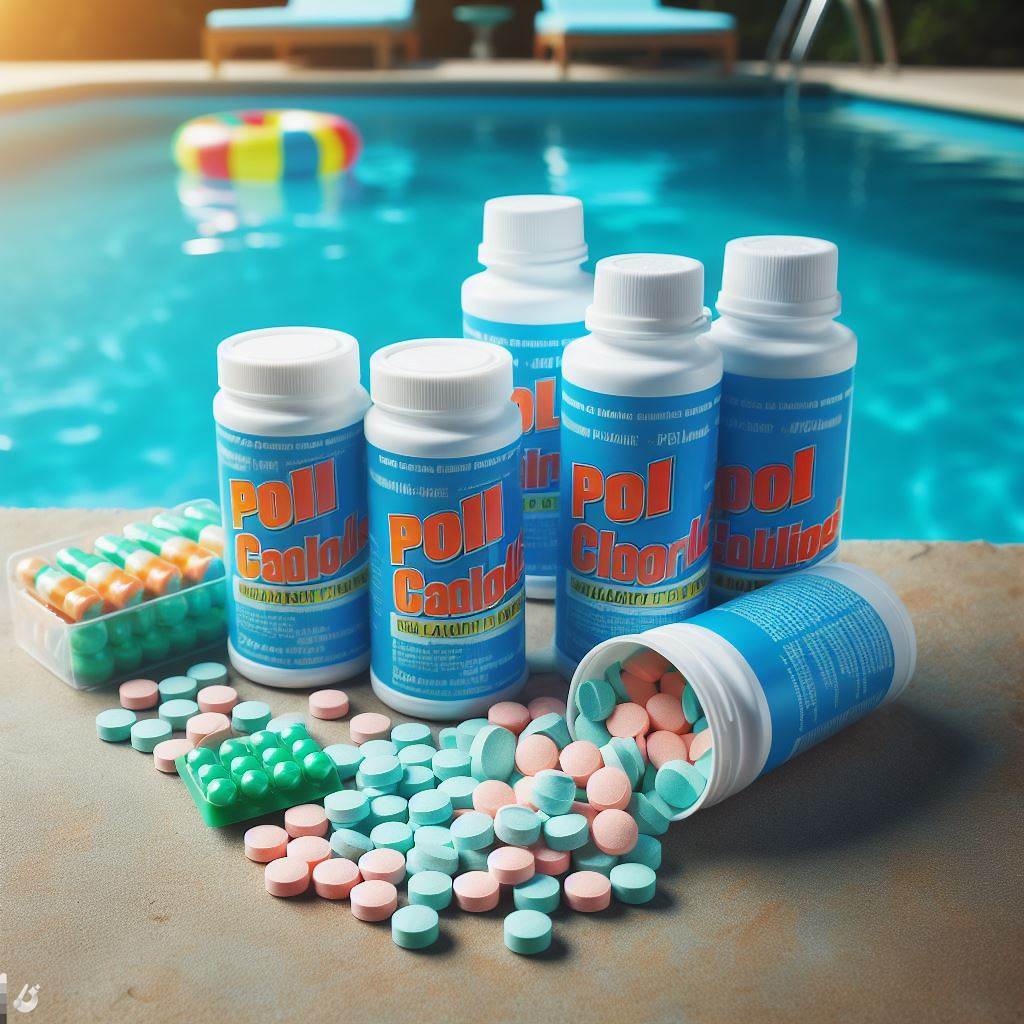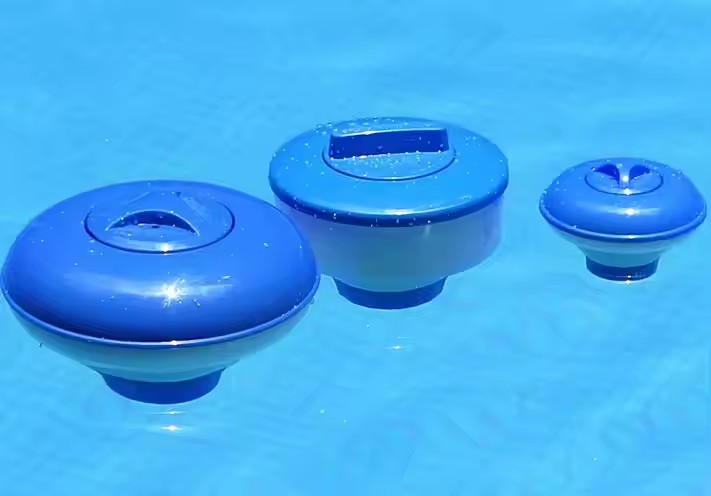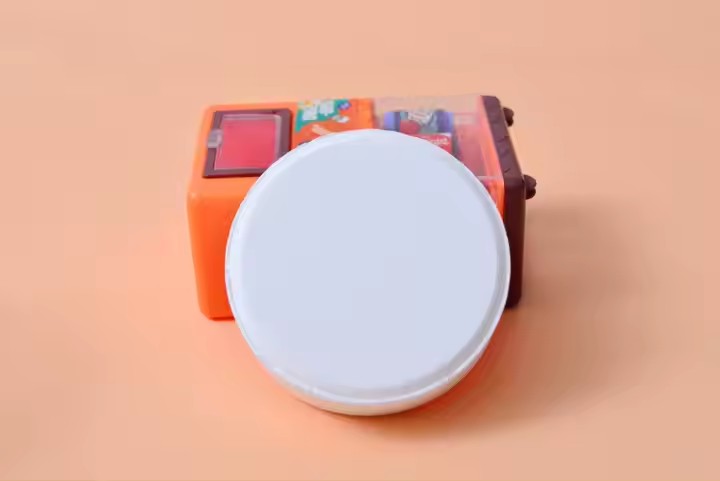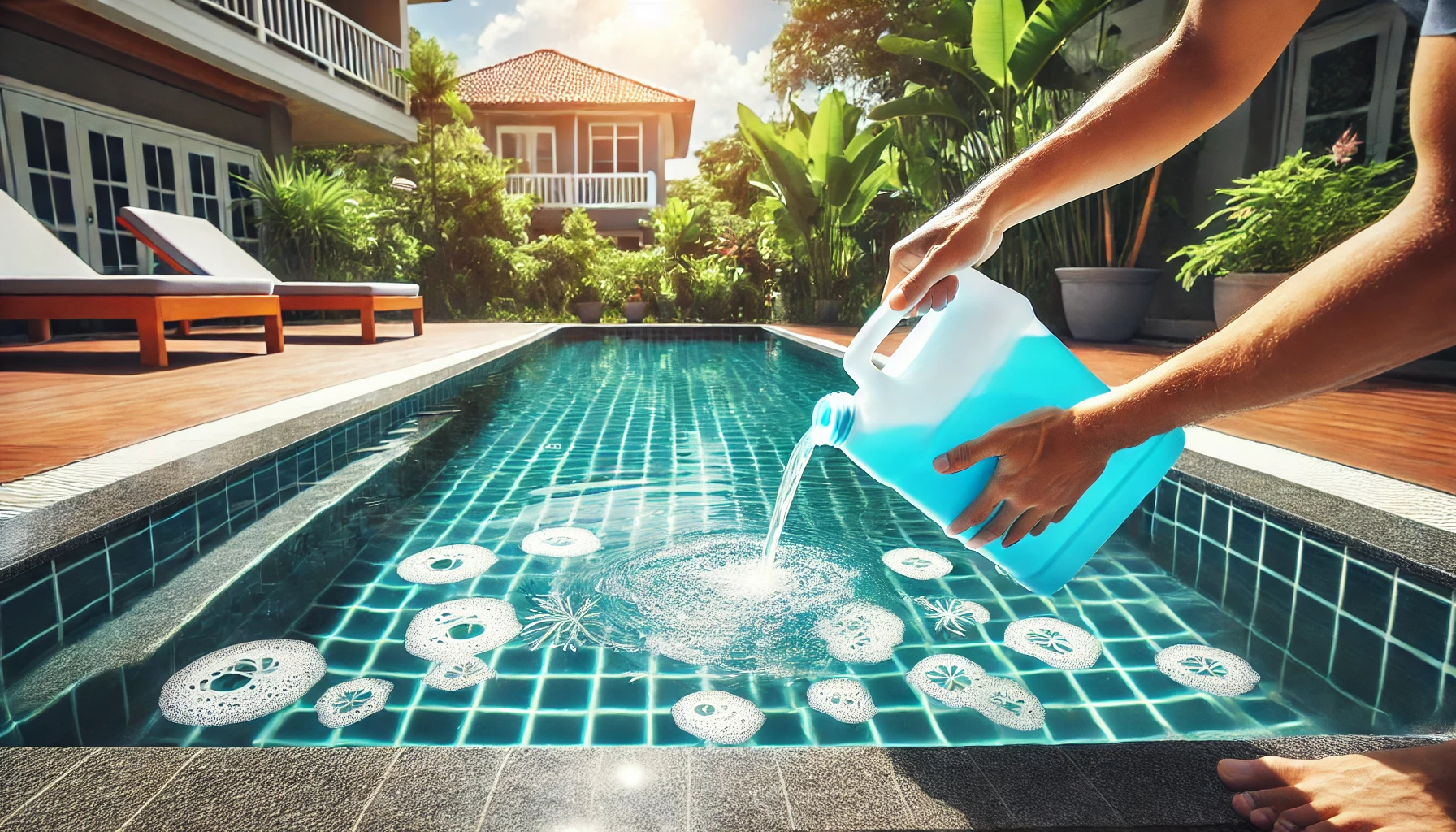Disinfecting swimming pools is one of the key steps in maintaining clean and safe water quality. Among the numerous disinfection methods, chlorine tablets are favored for their convenience and long-lasting effectiveness. Unlike liquid chlorine or granular chlorine, chlorine tablets (also referred to as chlorine tabs) release chlorine gas into the water through a slow dissolving process, thus providing a continuous and stable disinfection effect.
Basics of Chlorine Tablets
What are chlorine tablets?
Chlorine tablets are chemical products designed specifically for water disinfection. They exist in solid form and slowly dissolve in water, gradually releasing chlorine gas. This slow-release mechanism allows the water to maintain a lasting disinfection state, avoiding the short-term shock disinfection that comes with liquid and granular chlorine.
Two Sizes of Chlorine Tablets
Chlorine tablets usually come in two sizes. The 1-inch tablets are suitable for smaller pools, while the 3-inch tablets are suitable for pools with a capacity of over 5,000 gallons. Choosing the correct size of chlorine tablets can ensure efficiency and safety in water treatment.
Understanding the Types and Sizes of Chlorine Tablets
How to Choose the Appropriate Size of Chlorine Tablets
When selecting chlorine tablets, consider the size of the pool first. For larger pools, 3-inch tablets are more popular due to their slow-dissolving characteristics. Smaller pools might be more suitable for 1-inch tablets, allowing for more precise control of disinfection levels.Active
Ingredients in Chlorine Tablets
Most chlorine tablets contain a chlorine stabilizer (CYA) that helps protect the chlorine from breaking down under sunlight, maintaining its disinfective power. However, over time, an increase in cyanuric acid levels can affect the effectiveness of chlorine, necessitating regular testing and management.
Comparison of Chlorine Tablets with Other Forms of Chlorine
Use Cases for Liquid and Granular Chlorine
Liquid and granular chlorine are often used in situations that require a rapid increase in chlorine content, such as the initial filling of pools or quick treatment after a sudden deterioration in water quality. They require cautious handling and precise dosing to avoid chemical harm or corrosion of pool equipment.
Long-Term Stability of Chlorine Tablets
The stability and easy storage of chlorine tablets make them an ideal choice for long-term maintenance of pool hygiene. Correct usage of chlorine tablets not only maintains water quality but also reduces the risk associated with improper handling of chemicals.

Choosing Chlorine Tablets Suitable for Your Pool
Matching Chlorine Tablets to Pool Size
The capacity of the pool is a decisive factor in choosing the size of chlorine tablets. For most home pools, 3-inch tablets are often a better choice due to their longer dissolution cycle and lower maintenance needs.
Understanding the Dissolution Mechanism of Chlorine Tablets
It is crucial for water quality maintenance to understand how chlorine tablets dissolve in different types of dispensers and to choose the appropriate type of chlorine tablet based on the pool’s frequency of use and sun exposure.
Safe Methods for Adding Chlorine Tablets
Choosing the Correct Dispenser
It is recommended to use automatic chlorinators or floating dispensers for an even distribution of chlorine tablets. Incorrect methods of addition not only decrease the disinfection effect but may also damage the pool’s lining and equipment.Avoiding Direct Contact with Chlorine Tablets
Directly placing chlorine tablets into the pool can cause a high concentration of chlorine locally. It’s best to use designated dispensers to ensure even dissolution of chlorine tablets.
The Importance of Maintaining Pool Chemical Balance
The Importance of Testing Water Quality
Regularly testing the pool’s pH, alkalinity, and free chlorine levels is important to ensure the pool’s chemical balance. An imbalanced chemical level can not only reduce the effectiveness of disinfection but may also cause damage to pool equipment and discomfort to swimmers.
Adjusting Chemical Balance
If water quality tests show a deviation in chemical balance, it is necessary to adjust the number of chlorine tablets or replace part of the water in the pool to restore balance.
Conclusion
Chlorine tablets, as a convenient and durable method of pool disinfection, bring great convenience to pool maintenance. By selecting the appropriate size of chlorine tablets, understanding their dissolution mechanism, safely adding them, and maintaining the chemical balance of the water quality, we can ensure the cleanliness of the pool water, guarantee the health of swimmers, and extend the lifespan of the pool equipment.


